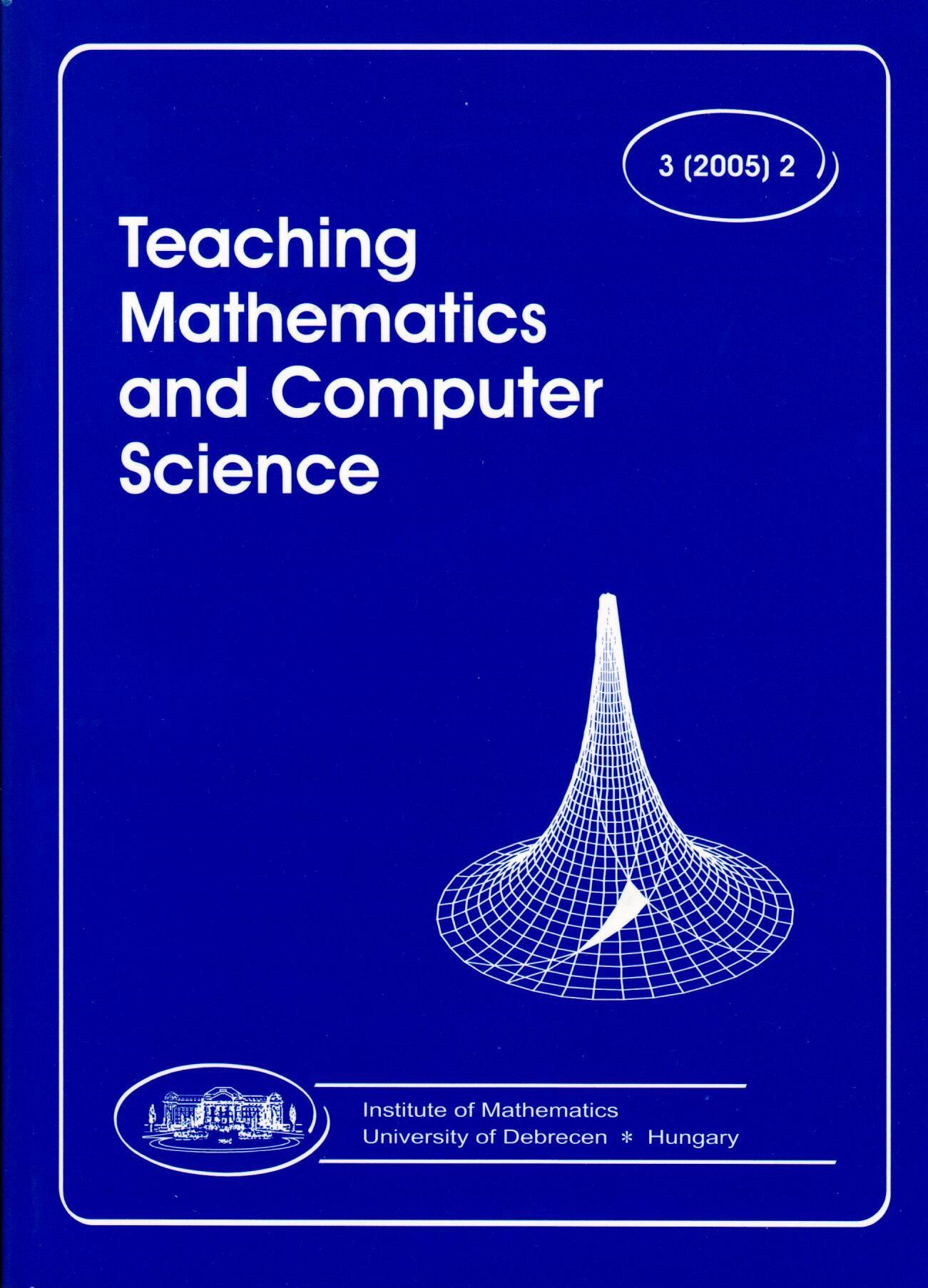Articles
Research on IT language use at a company
Published:
2005-12-01
Author
View
Keywords
License
Copyright (c) 2005 Attila Kálmán Juhász

This work is licensed under a Creative Commons Attribution 4.0 International License.
How To Cite
Selected Style:
APA
Juhász, A. K. (2005). Research on IT language use at a company. Teaching Mathematics and Computer Science, 3(2), 203-219. https://doi.org/10.5485/TMCS.2005.0092
Abstract
The aim of the research of the IT language, used in the written documents of a company, is to contribute to the creation of a (mono- or bilingual) dictionary or encyclopaedia available for the public on the Internet, serving, among others, as a reference tool for the unified, controlled and unambiguous use of IT terms for students at various educational levels. To this ongoing work, the participation and cooperation of a panel of experts of different competences, linguists as well as IT experts, is indispensable.
The methods of corpus linguistics were used to carry out the research. The IT terms were separated from the texts and then a concordance software was used to see the environment of the IT words and phrases in which they occur. So their morphological analysis became possible.
The results of the research showed that a great number of Hungarian morphological language use problems stem from the way the IT terms are used in the documents. This paper lists, groups, analyses these phenomena.
The conclusions of the author are: (1) If such an Internet dictionary is used generally and consulted when e.g. somebody wants to write a composition or essay, translate an article, write a newspaper article, a scientific publication or a textbook to be taught at schools of different types and levels, etc. most of the communication noises could be filtered out. (2) At the same time it could promote the use of adequate (both in linguistic and technical meaning) Hungarian terms eliminating the "Hunglish" usage. (3) It could also contribute to the prevailing use of the relevant Hungarian terminology. Such a dictionary would be indispensable, not only in educational and industrial environments but in the electronic and traditional media as well. Last but not least, it could raise the level of different teaching materials (textbooks, e-materials, etc.) used in public and higher education.
The methods of corpus linguistics were used to carry out the research. The IT terms were separated from the texts and then a concordance software was used to see the environment of the IT words and phrases in which they occur. So their morphological analysis became possible.
The results of the research showed that a great number of Hungarian morphological language use problems stem from the way the IT terms are used in the documents. This paper lists, groups, analyses these phenomena.
The conclusions of the author are: (1) If such an Internet dictionary is used generally and consulted when e.g. somebody wants to write a composition or essay, translate an article, write a newspaper article, a scientific publication or a textbook to be taught at schools of different types and levels, etc. most of the communication noises could be filtered out. (2) At the same time it could promote the use of adequate (both in linguistic and technical meaning) Hungarian terms eliminating the "Hunglish" usage. (3) It could also contribute to the prevailing use of the relevant Hungarian terminology. Such a dictionary would be indispensable, not only in educational and industrial environments but in the electronic and traditional media as well. Last but not least, it could raise the level of different teaching materials (textbooks, e-materials, etc.) used in public and higher education.

 https://doi.org/10.5485/TMCS.2005.0092
https://doi.org/10.5485/TMCS.2005.0092






